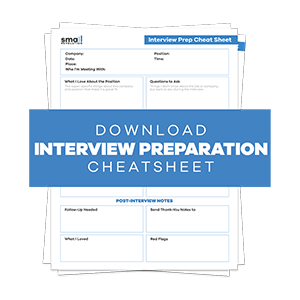Hiring managers make up their minds within minutes of an interview. You want to give the best possible impression by responding to their questions accordingly.
The good aspect of search engine evaluator interviews is that some questions are quite common. This means that you can prepare for them in advance and give yourself a better chance of impressing the interviewer.
Apart from preparing for the questions to be asked, don’t forget to:
- Research the company thoroughly
- Have a clear understanding of your work history
- Dress professionally and make sure you’re well-groomed
- Be confident during the interview
- Arrive on time, or even better, early
Here are four questions to expect during your search engine evaluator interview. You’ll also learn why hiring managers ask these questions and we’ll provide you with sample answers.
Question 1: What Is Your Experience With Search Engines?
Hiring managers ask this question to see if you have experience evaluating search engines. They’re looking for skills such as assessing for search relevancy, query functionality, content processing, and scalability.
The best way to answer this question is to give a specific example of when you had to evaluate a search engine. For instance, say:
“I was once asked to evaluate the results of a search query “Best dog food” on Google. I undertook this assignment in a five-step process that involved:
- Assessing for usefulness and relevance: I looked at the titles and descriptions of the articles on the first results page to see if they were relevant to the query. My focus was to ensure that the titles of those results were about the best dog foods in the market.
- Checking for accuracy: I clicked some of the links to ensure they took me to the right website. The right website based on this query had to offer a list of the best dog foods available.
- Determining if the results were comprehensive: I scanned through all the results on the first page to see if anything was missing. In this case, I looked for details that showed the writer understood ingredients that make the best dog food, like meat, vegetables, and fruits.
- Checking for duplicates: I looked through the results to see if there were any duplicate articles. This was to ensure that users aren’t seeing the same article multiple times when they search for this query. It’s also necessary to avoid confusing search engines on which article to index.
- Evaluating the quality of information: I read through some of the articles to understand whether they were well-written and provided accurate information. I analyzed spelling and grammar mistakes and whether or not the information in the article was up-to-date.”
Question 2: What Do You Think Makes a Good Search Engine Evaluator?
This question aims to get a sense of your understanding of what the job entails and the company’s expectations. The best way to prepare for it is by reading the job description thoroughly and researching the company beforehand.
An excellent answer to this question is:
“A good search engine evaluator needs advanced web search and analytics skills. They must be comfortable using different tools like Google Analytics to assess data and come up with conclusions. They should also have excellent writing skills to provide feedback that’s well-written and easy to understand.
Moreover, they must be able to remain impartial when assessing results. It’s essential for them to look at the results objectively and not let personal biases influence their judgment. Finally, they need to be detail-oriented and able to identify both small and big issues like typos and if the article is outdated.”
Question 3: Do You Have Any Experience With Coding or Web Development?
The interviewer asks this question to assess your technical skills. While it’s not a requirement to have coding or web development experience to be a search engine evaluator, it’s an added advantage.
It’s best if you understand how search engines view a site through front-end and back-end coding skills.
If you have experience with coding or web development, highlight your relevant skills in your answer.
For instance, say:
“I have experience with front-end and back-end web development. I’m proficient in HTML, CSS, and Javascript. In addition to that, I know how to use different content management systems like WordPress and Drupal.”
If you don’t have experience with coding or web development, you can say:
“I don’t have experience with coding or web development. However, I’m detail-oriented and good at spotting errors. I’m also quick to learn new things, and I’m confident that I will learn how to code if given the opportunity.”
Question 4: What Do You Think Is the Most Important Factor in Search Engine Optimization?
The interviewer asks this question to get a sense of your understanding of how search engines work.
An excellent answer to this question is:
”The most important factor is relevance. The content on a website must be relevant to the user’s search query to rank high in the search results. In addition to that, the website must be updated regularly with new and relevant content.”
To make an even bigger impact, you could also highlight some of the other factors, like mobile friendliness, user experience, domain authority, and page loading speed.
Expert Tip: Be as specific as possible. Giving examples from your experience will help the interviewer understand how you’ll perform in this role. Finally, avoid using phrases like “I think” or “I believe.” Such phrases make your answers less confident.

Search engine evaluation is among the highest-paying online jobs as shown by the salaries on the table below.
| City | Annual Salary | Hourly Wage |
| Sunnyvale, CA | $63,608 | $30.58 |
| Williston, ND | $60,358 | $29.02 |
| Barnstable Town, MA | $59,732 | $28.72 |
| San Mateo, CA | $59,166 | $28.45 |
However, to getting hired as a search engine evaluator requires thorough preparation for the interview. You must demonstrate to hiring managers that you’re the perfect candidate by answering interview questions appropriately and displaying confidence in yourself and your ablities.
The Small Revolution blog has interview questions and answers for different job classifications. Check it out to sharpen your skills and increase your chances of getting employed.
Small Revolution also offers online courses for different fields like copywriting. This course will equip you with the necessary skills to help you stand out from the competition and even get you hired.
“I’ve been promoted as supervisor for the FilterBuy offsite team last week and it’s all thanks to you, guys.”
April.
Frequently Asked Questions
What does a search engine evaluator do?
A search engine evaluator is responsible for assessing the quality and accuracy of search results. He or she must be able to identify both good and bad search engine results and recommend the necessary changes.
What makes a good search engine evaluator?
A good search engine evaluator possesses advanced web search and analytical skills. Such skills include using different tools like Google Analytics, being detail-oriented, writing well, and having good research skills. In addition, they must remain impartial when assessing results.
Where are search engine evaluators employed?
Search engine evaluators are employed by search engines like Google, Yahoo, and Bing. They’re also employed by companies that provide SEO services.
What is the difference between a search engine evaluator and a search engine optimizer?
A search engine evaluator is responsible for assessing the quality and accuracy of live search results.
On the other hand, a search engine optimizer is responsible for improving the ranking of websites in a search engine by optimizing content and websites for search engines.
Both roles require advanced web search and analytical skills.
Share on Facebook:



